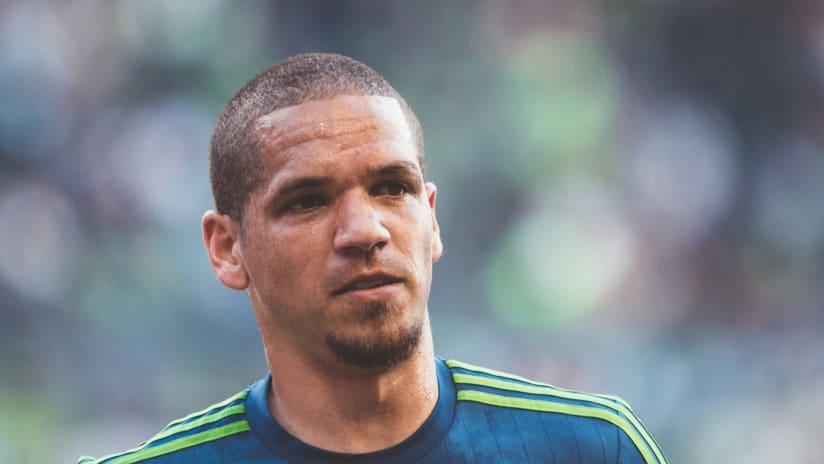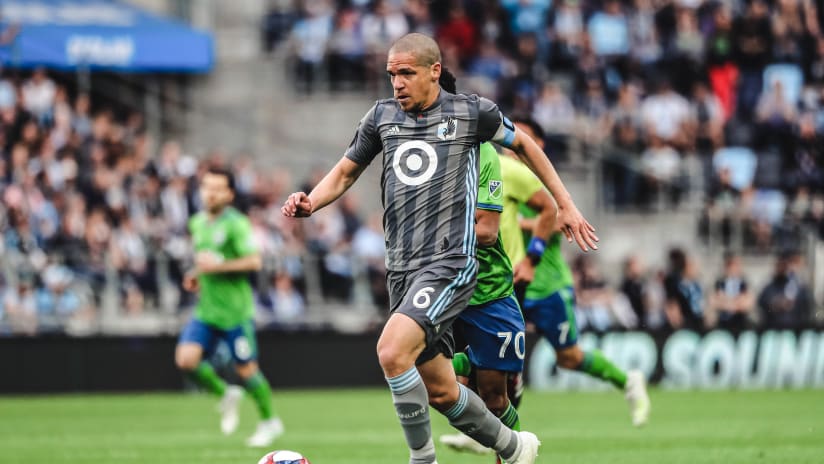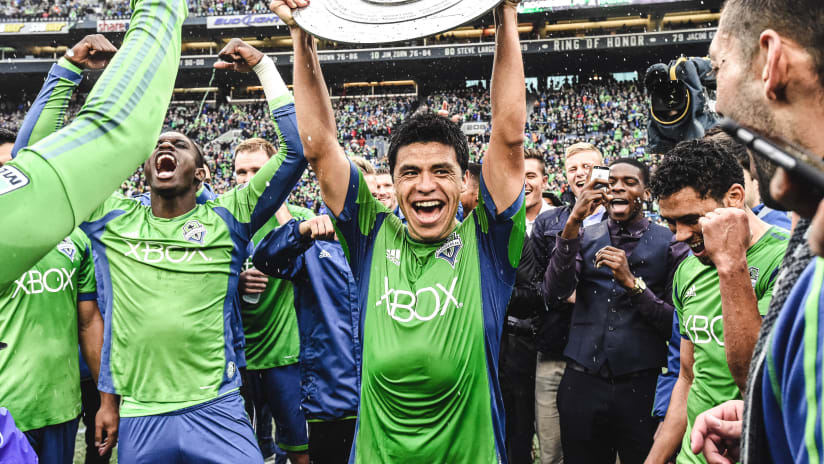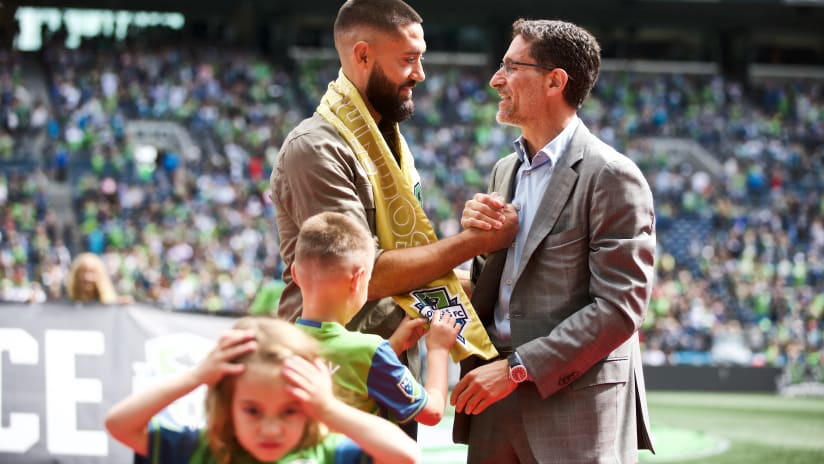
It’s been so many years since Osvaldo Alonso heard the humid Caribbean breeze sing through the Cuban palms that he has to strain to remember those gently lilting details about his native country. There are faint whispers of home in Seattle - famed local Cuban joint Paseo among them - but home is home. Even with its warts, it’s a hard thing to replicate.
Alonso walked away from the Cuban national team in Houston during the 2007 Gold Cup, defecting to the U.S. with $700 zipped into his jacket and little else. Just 21 at the time, Alonso didn’t even speak English and hopped a Greyhound bus to Miami to start a new life. After eight years, the U.S. and Seattle have become another home for Alonso, who still holds out faint hope of someday playing for the U.S. National Team. In 2012, Alonso became a full-fledged American citizen.
But there’s also the hope of going home again, something he hasn’t been able to do since he left Cuba due to the historically stringent travel restrictions. As Cuba’s removed those barriers just recently, that day could be closer at hand than ever.
“This year, I hope,” Alonso said. “It’s my goal.”
Next week, Alonso said he’ll send his passport to the Cuban embassy to obtain permission to lawfully enter the country for the first time since 2007. The process could take as little as a couple weeks, which would free him to go back to Cuba this offseason to see friends, family and the place of his upbringing that’ve been clouded in shadow for the better part of a decade. He already has a time picked out if he’s accepted.
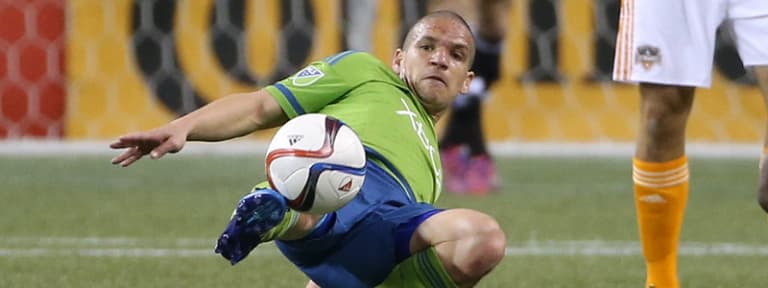
Alonso has been a constant in Seattle’s midfield since the club joined MLS in 2009, positioning himself as the league’s best defensive midfielder and a constant at the MLS All-Star Game. Only nagging injuries, which forced him off the field for all of March and all of June, kept him off the roster for this week’s All-Star Game in Denver. It certainly wasn’t his form, which is as hot as ever. The team owes much of its stingy defense and ability to keep possession despite a dearth of goals to Alonso’s atomic energy.
But the thought of going back to Cuba this offseason? Even more motivation to finish the season strong.
“It’s going to be tough after eight years of living here, playing here without seeing my family,” Alonso said. “It’s going to be tough but exciting for me to see my friends, my family down there.”
Alonso’s teammates have been the beneficiary of his good humor in the locker room and his brutal effectiveness on the field, so for them to see Alonso get a chance to return to his original home base? Hard to find a group of guys who understand Alonso’s desire more.
“Ever since I was 18, I’ve pretty much been on my own,” veteran forward Chad Barrett said. “I go away for nine months and I miss my family like crazy. I like to go back and see them and my friends, and it feels like I haven’t seen them in so long. So I can’t imagine what he must be feeling, the chance to go back and see old family and old friends that he grew up playing with that he hasn’t seen in a little short of a decade. That’s amazing for him. I think that’ll be great for his morale. Sometimes it’s good to be able to go away and come back and get a clear mind, maybe have some good Cuban food. I’m happy for him. I think it’ll be great for him.”
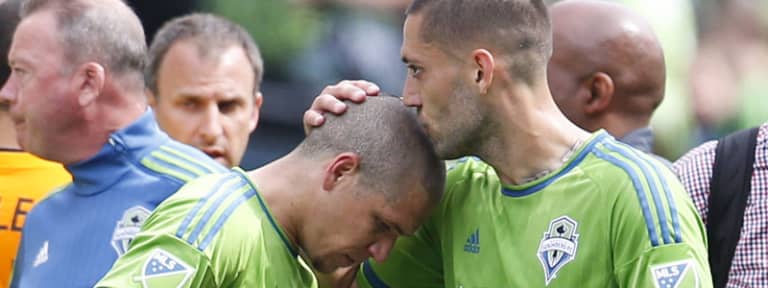
Alonso’s influence on the team this year is almost impossible to understate. In the 14 matches he’s played this season, Sounders FC has surrendered just 10 goals. In the eight games he hasn’t played, that number stretches to 11, a leap of more than half a goal per game. Alonso’s role has always been difficult to quantify because of its nature, which doesn’t lend itself to traditional avenues of numerical collection. Alonso rarely scores or plays the final ball, so his numbers don’t always translate neatly. Thanks to a few deeper metrics, though, we know more than ever about Alonso’s effectiveness beyond simply his ball-hawking.
As a defender, Alonso’s bonafides are obvious. He wins back balls with dogged persistence and restarts attacks. But the manner in which he restarts them is unlike all but a few defensive midfielders in the league. Only Orlando City’s Darwin Ceren and New York Red Bulls’ Dax McCarty complete more passes per game than Alonso, whose 91 percent pass completion rate is not only the best in the league, but it’s the only one over 90 percent. His calm discrimination in regards to what to do with the ball once he comes up with it deep in his own third is remarkably consistent. It’s also helped keep Sounders FC’s possession ratio above 50 percent for nearly the entire season regardless of whether its other two Designated Players were on the field.
What’s even more remarkable is that Alonso’s been able to do it with so many dance partners in midfield. As Sounders FC has juggled its starting XI due to a seemingly never-ending spate of national team absences and injuries, Alonso’s played alongside five different midfielders this season, each with vastly different player profiles.
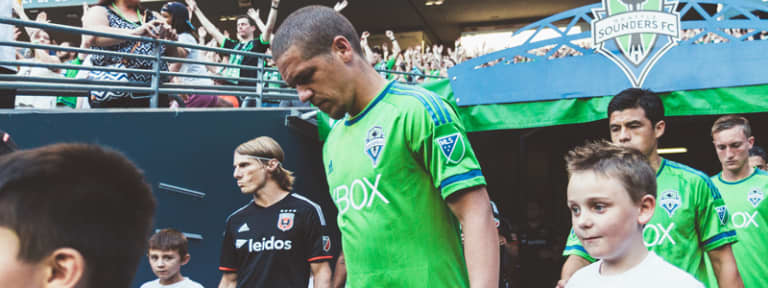
While Alonso’s degree of comfort with a player like Gonzalo Pineda might be a touch higher - those games tend to lead to Alonso’s best passing games - he’s hardly slowed no matter who’s on the field.
“They all have different styles of play,” Alonso said. “But I’m very confident to play with any player who plays next to me. They are good players, so we have to find a way to win as a team.”
That’s next. As Sounders FC turns the page to August, they do so with a renewed sense of purpose. As players trickle in from national team duty and heal up from injury, Alonso is waiting, like he’s always been, to play the support role as the team’s beating, compassionate heart in the middle.
“It’s been tough for us, too many injuries and missing a lot of players,” Alonso said. “But it is what it is. We’ve got to now stand up and play like we played before at the beginning of the season. We have to be mentally and physically strong and get the result.”

